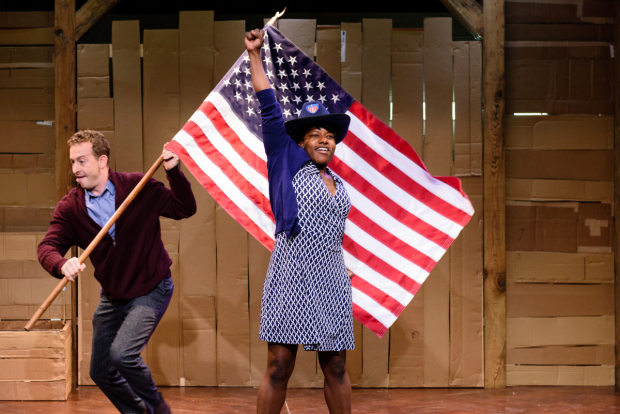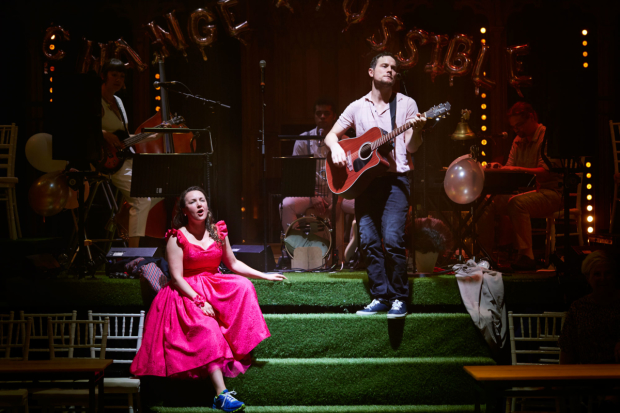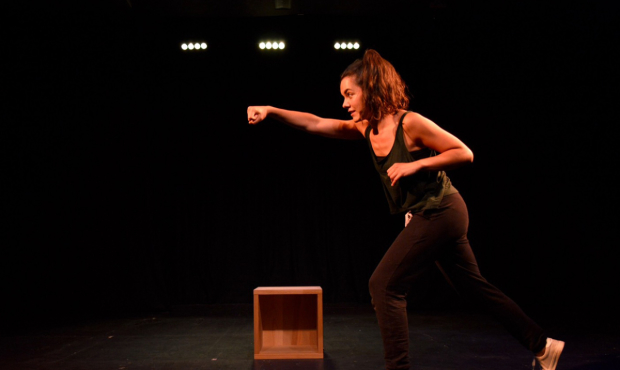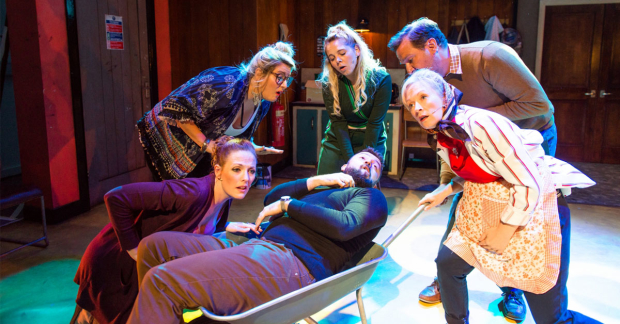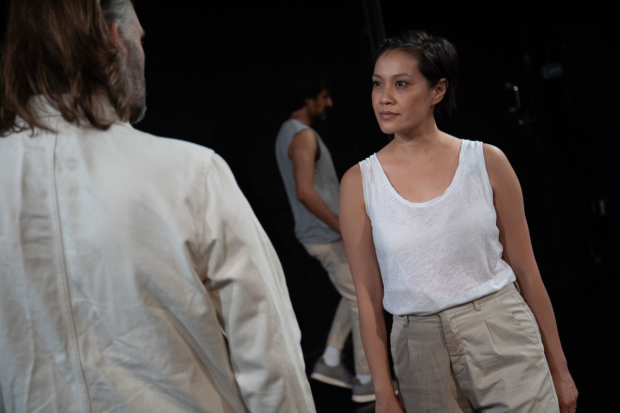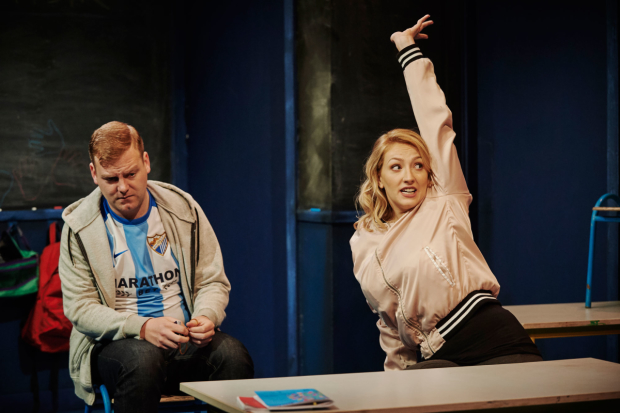Review: Meek (Traverse Theatre, Edinburgh Fringe)
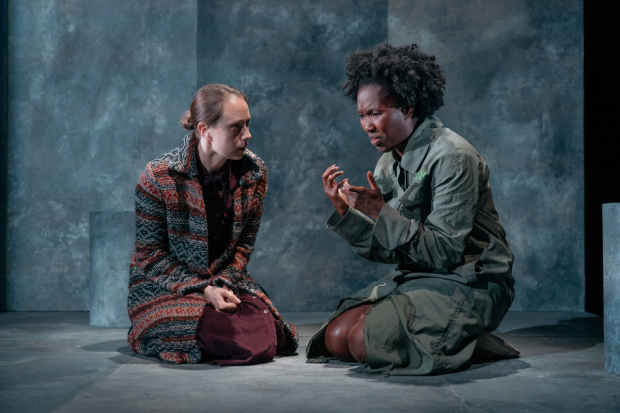
© Helen Murray
It's unfortunate for Penelope Skinner that The Handmaid's Tale has become such a worldwide TV phenomenon before the premiere of her play Meek, commissioned four years ago, with which it shares a theme and an aesthetic.
Here we are in a dystopian society of Christian Fundamentalists where rule by the "disciples" has turned women into chattels of men, without rights of their own, unable to leave home without permission from their husbands, or to walk unchaperoned. Here, in a prison cell, we encounter Irene (Shvorne Marks), who has written and performed a love song which has been taken to be a blasphemous attack on the Holy Spirit. Now the authorities want to make an example of her.
Supposedly translated from "an imaginary unknown Scandinavian language", the story unfolds through a series of short visits to her cell from her lawyer Gudrun (Amanda Wright) and her nervous best friend Anna (Scarlett Brookes). As her situation worsens, and she is sentenced to death, they bring news of a world where people on social media across a free Europe and a free world are campaigning for her release. Her fate hangs in the balance, even as the fame she has always longed for increases.
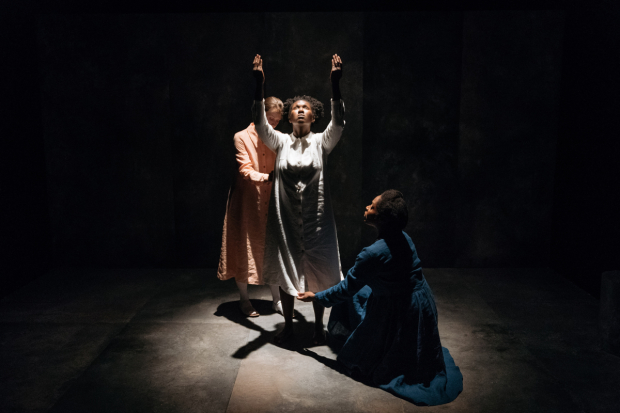
© Helen Murray
Skinner, author of Linda and The Village Bike, is a wonderful writer, her words poised and controlled, her probing of what makes people tick interesting and unexpected. Under the surface, the ideas here are subtle and tricky; she is good on mixed motivations and the fallibility of human nature, even when resisting an oppressive state. Quite the best scene is one in which Anna charges Irene with seeing herself as a saint.
The production, produced by Headlong in association with the Birmingham Repertory Theatre, is directed by Amy Hodge with a portentous sense of its own worth, and designed with heavy-handed obviousness by Max Jones. It is more monolithic than the writing, overwhelming the flow of ideas and the intelligence of all three performances. (I particularly liked the stillness of Wright's Gudrun, concealing her excitement that Irene's story might help to undermine the regime.)
There are also two plot twists which I defy anyone not to guess. These add to the sense that we have seen this all before – and detract from the fact that when it comes to Skinner's analysis of how people can imprison themselves, we really haven't.




